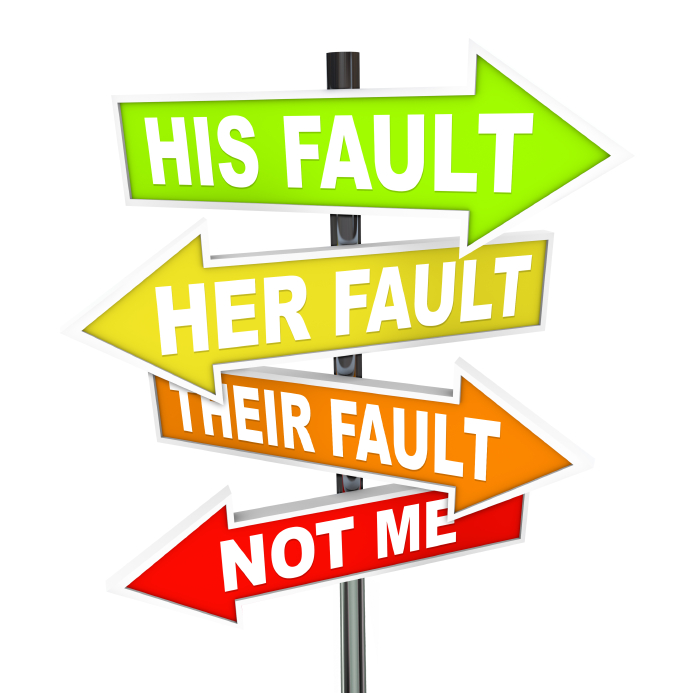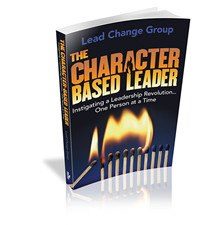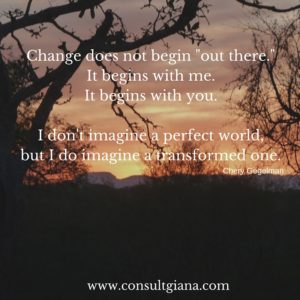This post was originally featured on SmartBlog for Leadership after 20 years of experiences and a very thought-provoking blog written by Jesse Lyn Stoner….

Have you ever been frustrated by name-calling, finger-pointing and the blame game? Or watched how harsh judgments can divide people, divide organizations and result in inefficiency and ineffectiveness?
For 20 years, I’ve observed the impact that judgment has on relationships, families, organizations, neighbors, communities and nations.
When I was a youth director, I noticed that when teens with a strong vision for their own lives said “no” to what was popular to stay focused on personal goals, their peers frequently perceived that they were being judged — even when they weren’t. They in turn judged the teens with vision.
That perception of judgment frequently caused the teens without vision to band together and alienate or bully the teen with clear vision, leaving scars and closing opportunities for both groups to learn from each other.
I watched this same behavior take place in neighborhoods, workplaces, politics, churches and different parts of the world. Sometimes those judgments were real and sometimes they were imagined. Sometimes individuals suffered alone. Often, however, those judgments affected the way people worked together, problems were solved, opportunities were maximized and organizations and economies grew or shrunk.
Collaboration means respecting the people who see things differently, rather than assuming a superior attitude and dismissing them as evil, crazy or out of touch with reality. — Jesse Lyn Stoner
In the past election, Americans were inundated with propaganda about the pending election. As the election got closer, posts on social media increased in frequency and intensity. I have friends on both sides and was surrounded by posts as they tried to make their point.
At first glance, many posts resonated with truth and I was tempted to share them. Then I would re-read the post and realize that most contained a knife of judgment: “Those Liberals say …”; “Those Conservatives would have you believe …”; “The right”; “The left”; “Muslims”; “Christians.”
We are all in this together. If you are stuck at a pole blaming ‘them’ for being unreasonable, remember that in the view from the other side of the pole, you are ‘them.’ — Stoner
Post-election. I’ve continued to watch the same behavior as other hot issues consumed social media.
Each time, I’ve wondered:
[Tweet “If we dare to speak truth, but we veil it in judgment, how can anyone hear us?”]
[Tweet “If we can’t hear each other, how can we change our world?”]
[Tweet “If we aren’t speaking to change our world, why are we speaking — if not to judge?”]
I can’t ask those questions without examining myself and I have to admit that the more aware I’ve become of this behavior “out there,” the more I’ve recognized this behavior in myself. I’ve also noticed that even when I make a conscious effort to seek first to understand, I often make assumptions based on my own experiences or beliefs.
And when I’m not paying attention to my own thought-process and behavior, it is easy to generalize, marginalize and judge. So for several years, I’ve asked more questions, I’ve focused on listening more, and I’ve done a lot of pondering.
In a recent Harvard Business Review article, Mark Goulston and John Ullmen make this point: “Don’t start by trying to pull others into your here. Instead, go to their there by asking yourself:
- Am I getting who this person is?
- Am I getting this person’s situation?
- Am I offering options and alternatives that will help this person move forward?
- Does this person get that I get it?”
This is one example of my pondering.
I recently moved to a part of the world with a culture that is different from my own. It is a culture that is often feared and harshly judged.
Almost as soon as I arrived, I started to hear stories from people of my own cultural background about some of the bad experiences they’ve had here and how judged they have felt. Many times their reactions have been as human as mine usually is. They judge in return. As a newcomer, it appears that although we live here and we see each other everywhere, for the most part, locals and foreigners live separate lives.
So as I seek to understand why there are not more bridges between the locals and those of us who have relocated there, I am reminded of the oil boom in my home state of North Dakota. This very rural area is benefiting from a very robust economy, but at the same time, the boom is so large that it has completely filled housing, increased traffic, increased crime and significantly challenged the infrastructure of the state.
Everything is changing for the locals. On the flip side, many of the oil workers have either had to relocate their families into very inadequate housing or had to leave families for weeks at a time and fly in and out for work.
When I hear the stories and the judgments that go with them, I often feel conflicted. I understand some of the increased challenges that my friends and family are facing and it is not easy.
At the same time, as the spouse of someone in the oil industry, I understand and relate to the individuals and families who do this work and the challenges they face. (Today as I am just beginning to navigate being an outsider, I am so thankful that I have that reference point!)
Over the years, as this journey on judgment and collaboration has evolved, I’ve been nurturing a growing dream.
Think for a minute about the issues that divide us:
- They may be the ones that are making headlines.
- Or they may be something in your workplace, community, neighborhood or family.
What if:
- We would sit down at a table surrounded by diverse people and really listen?
- We allowed others to share their stories and convictions unapologetically and with passion?
- We left those conversations and examined our own hearts and motives?
- We dived into world history to learn from the past?
- We came back to the table to share what we’ve learned, deeply desiring to better understand?
- We would sit at that table and intentionally look fear (and some squiggly things) in the face and begin to turn each one of those rocks over?
[Tweet “Change does not begin “out there.” It begins with me. It begins with you.”]
I don’t imagine a perfect world, but I do imagine a transformed one.
What would you give to sit at that table?
Special thanks to Jesse Lyn Stoner for her post “Collaboration Is the Remedy for Polarization.” Her post caused me to put a pen to questions that have been building for years.



